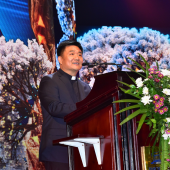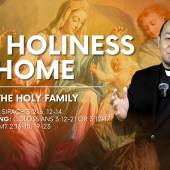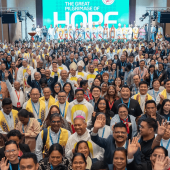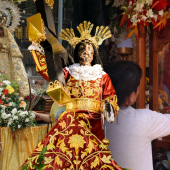“Acts” Inspires Asian Laity to “Act”
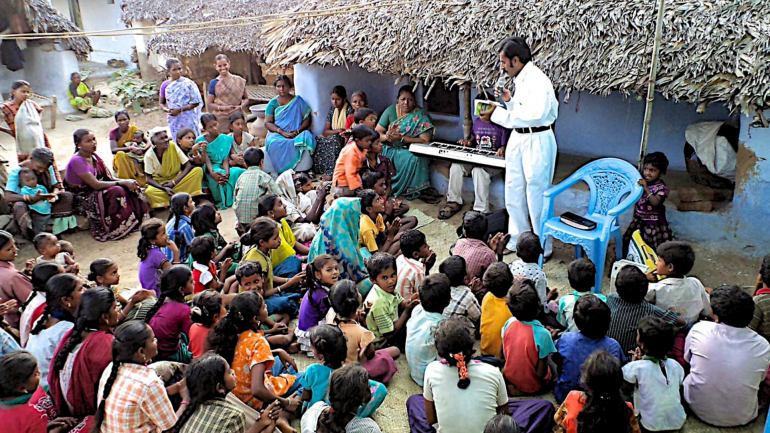
Every Wednesday, as the sun dips behind the coconut trees and the kampung (Malay for village) settles into its twilight rhythm, barking dogs, the hum of distant motorcycles, and the fragrant waft of Borneo laksa (spicy noodles) from someone’s kitchen, I find myself in an unlikely upper room of sorts.
Here, at Kampung Quop (about 25 km south of Kuching city, Malaysia), a small group of us comes together to read the Bible, pray, sing, and share fellowship, finding strength and joy in one another’s company. Sometimes we meet in the home of Harold Voss, a Canadian married to a local woman, and at other times at Reides Grove, the residence of Leo, an American who has also made his life here with a Borneo native. It is in these simple gatherings, in homes and kampungs, that the story of the Acts of the Apostles comes alive again.
Acts is more than an ancient record of the early Church; it is a living testimony of how faith can thrive amid challenges. For Christians today, particularly in Asia, Acts resonates with fresh urgency, reminding us that the Church is not only sustained by clergy but also animated by the faith, courage, and witness of laypeople. From the Pentecost experience in Jerusalem to Paul’s tireless missionary journeys, Acts narrates how the Holy Spirit empowered ordinary believers to carry the Gospel to the ends of the earth. The apostles may have taken the lead, but lay disciples played a pivotal role.
Lydia, a businesswoman who sold purple fabric, opened her home in Thyatira to Paul and his companions, creating one of the earliest Christian communities in Europe. Priscilla and Aquila, tentmakers, taught Apollos the way of God more accurately. The home, not just the synagogue or temple, became a sacred place of encounter.
I see an echo of this every Wednesday night. We, too, gather in a humble home, opening Bibles instead of tents, learning the way of God as best as we can. Like Lydia, Priscilla, and Aquila, our hosts Harold and Leo make space for the Word to be heard. Kampung Quop is not Philippi or Corinth or Thyatira, but the Spirit works quietly here too, in the questions we ask, in the fellowship we share, in the simple act of reading Scripture together, raising a hymn and prayer heavenwards.
For many Christians across Asia, such spaces of faith are vital. The continent is home to only a small fraction of the world’s Christian population, and believers often live as minorities in societies shaped by other great religions. In these contexts, it is often lay Christians who become the first missionaries in their families, workplaces, and neighbourhoods. Just as in our little group, where no one claims authority but all share a desire to learn, Asian Christians keep the flame of the Gospel alive at the grassroots.
The challenges are real: religious restrictions in some countries, discrimination or suspicion toward Christians, and the relentless pace of modernisation that leaves little room for prayer. Yet, as Acts reminds us, the Gospel has always spread under adversity. Just as Peter and John stood courageously before authorities, Asian Christians are called to witness with gentleness and conviction in places where their faith may not be fully understood or welcomed. Acts also speaks powerfully to the communal spirit of the Asian Church. The early believers “had everything in common” (Acts 2:44), ensuring that no one was in need.
This resonates deeply in Asian cultures, where community and family bonds are prized. In contexts of poverty and inequality, the Acts model of solidarity invites Christians to live their faith not only through words but through acts of service, charity, and justice.
Week after week, as I sit in that kampung house in Quop, I realise that what we are doing is not so different from what the first Christians did. We are a small community of believers, reading the Word, breaking open its meaning, encouraging one another to live it out. Our numbers may be small, our voices uncertain, but the Spirit is present. For the modern lay Christian in Asia, Acts is not merely a historical account; it is a mirror. It shows how faith begins at home, is nurtured in community, and is propelled outward by the Spirit. And it reminds the whole Church, bishops, priests, religious, and laity alike, that mission is never the task of a few, but the call of all who are baptised.
In this way, the Acts of the Apostles continues to live on, not just in Scripture, but in places like Kampung Quop, Borneo, where a handful of Christians gather on Wednesday evenings to read, pray, and believe together. It is here, in the twilight of the village, that the story of Acts is still being written in Asia today.
(Joseph Masilamany is a veteran Malaysian journalist and freelance writer with extensive experience in Catholic media. He contributes regularly to leading Catholic news agencies and platforms.)
Radio Veritas Asia (RVA), a media platform of the Catholic Church, aims to share Christ. RVA started in 1969 as a continental Catholic radio station to serve Asian countries in their respective local language, thus earning the tag “the Voice of Asian Christianity.” Responding to the emerging context, RVA embraced media platforms to connect with the global Asian audience via its 21 language websites and various social media platforms.










